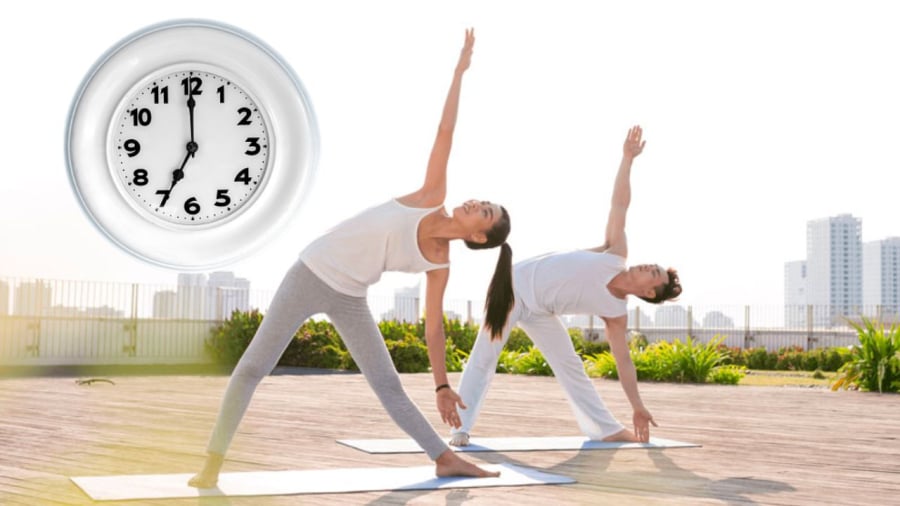Normally, we think of morning exercise as a way to start the day, awaken the senses, but is morning really the best time to exercise?
Morning and evening workouts are different
Some studies have shown different effects between exercising in the early morning and exercising in the evening.
If you consistently exercise in the morning, it will help improve your work performance by releasing endorphins that keep you in a happy state and energized. Additionally, this habit helps enhance the process of carbohydrate and fat metabolism, which is beneficial for overweight individuals, type 2 diabetes, as well as improving cognitive abilities.

Different workout times bring different results
If you exercise in the evening, it helps develop muscles, reduce stress, and achieve better results for professional athletes.
In 2023, Skidmore College (USA) conducted a small study with both men and women to find a more specific answer to the question “Is morning or evening exercise better?”.
The researchers divided the participants into two groups: morning and evening exercises. The exercises performed by both groups were the same, only the time frames were different. And the results showed that despite the same exercises, different times resulted in different effects. The study recorded that for women who want to lower blood pressure or reduce belly fat, morning workouts are the best. For women striving to increase muscle, endurance, or improve overall mood, evening workouts are recommended. In men, the results were somewhat reversed: Evening exercise helped lower blood pressure, reduce the risk of heart disease, and fatigue, while morning exercise helped them increase muscle strength, flexibility, and overall training performance.
How to change your workout time?
Based on the above results, many people may want to change their workout schedule. In addition, workout time should be arranged reasonably because exercising too late can affect sleep quality, while exercising in the morning may make you lack energy and hinder your peak performance. Experts suggest starting with adjusting your sleep routine.

You should change your workout time to achieve desired results
Whether you stay up late or wake up early has a direct impact on your workout results. Dr. Jennifer J. Heisz, PhD in Kinesiology at McMaster University (Canada) stated that for 25% of the Canadian population who consider themselves “night owls,” getting enough sleep and regular exercise can be challenging.
Therefore, exercise in a way that does not affect sleep, as sleep is the top priority after exercising as it provides the body with the necessary time to recover and reap the benefits of exercise. Regardless of the time you exercise during the day, the effectiveness will decrease if you don’t have enough time to sleep.
Experts advise that if you want to switch to morning workouts, try combining outdoor exercise as natural light is a biological signal that makes it easier for you to wake up and start exercising the next day.
In addition to choosing the workout time, experts recommend maintaining regularity to achieve optimal results. The recommended duration is about 150 minutes per week, which has been proven to be related to prolonging lifespan, preventing chronic diseases such as heart disease, diabetes, obesity, as well as improving both mental and physical health.
Tips for Keeping Cool on a Hot Summer Day
As extreme weather patterns become increasingly common, many are struggling to find ways to cope. With temperatures in our country rising and cooling far beyond what used to be considered normal for the season, winter often feels like spring and summer can be oppressive and sweltering. How can we prepare for and manage the drastic shifts in climate?





































